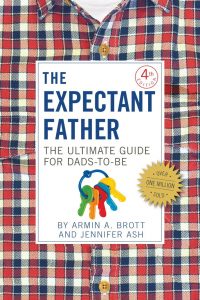 There are two things working against me here. 1) I am not used to reviewing reference books, and 2) I’ve been reading The Expectant Father slowly because the chapters are divided by months, and I’m trying to not read the whole thing in a row so I have a better idea of what to understand in the moment, instead of all at once and then I forget things by the time they’re relevant. As such, I’m only about four chapters in and have something like two-thirds of the book to go, since there is a big delivery room chapter. So this is at least part of why the review is split into two pieces.
There are two things working against me here. 1) I am not used to reviewing reference books, and 2) I’ve been reading The Expectant Father slowly because the chapters are divided by months, and I’m trying to not read the whole thing in a row so I have a better idea of what to understand in the moment, instead of all at once and then I forget things by the time they’re relevant. As such, I’m only about four chapters in and have something like two-thirds of the book to go, since there is a big delivery room chapter. So this is at least part of why the review is split into two pieces.
Anyway: I do not know how valuable of a resource it is in terms of actual learning / time-specific knowledge. I think it’s probably closer to good than bad along that axis? It spends time talking about how things are for the interloper, how things are for the host, and how things are for me, and man, who knows if any of it is actually right, is my point. But it’s probably good, is my other point.
What it is definitely good at is making me feel like I have a handle on things. Which is, y’know, shockingly important! Or probably not especially shocking, in retrospect. Hopefully it proceeds along the same continuum as I continue to read it. All will be revealed in the second part of the review.
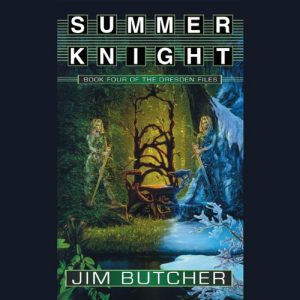 I am shocked to see that we finished listening to the last Dresden Files book less than six month ago. It really seems much longer ago. Which means that yay, still accomplishing something here. Anyway: as usual, the first and most important part of
I am shocked to see that we finished listening to the last Dresden Files book less than six month ago. It really seems much longer ago. Which means that yay, still accomplishing something here. Anyway: as usual, the first and most important part of 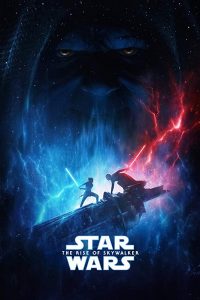 This will be a long one. It will definitely contain a bunch of spoilers, but not for a while and not without notice. Also below a cut, but that’s only so useful unless you’re on the front page of my site, and nobody but me ever is.
This will be a long one. It will definitely contain a bunch of spoilers, but not for a while and not without notice. Also below a cut, but that’s only so useful unless you’re on the front page of my site, and nobody but me ever is.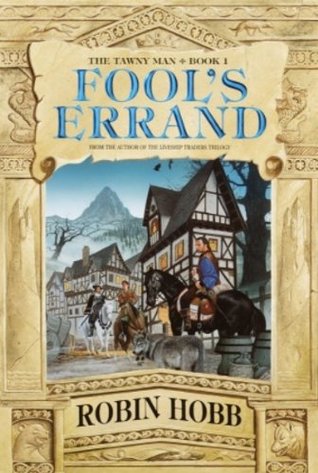 My Hobbsian (and let’s be honest, to a very real extent Hobbesian) journey continues, with the first book of the Tawny Man trilogy.
My Hobbsian (and let’s be honest, to a very real extent Hobbesian) journey continues, with the first book of the Tawny Man trilogy. 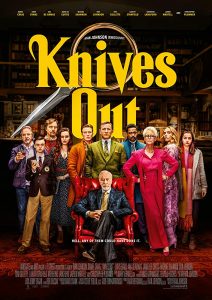 As you cannot in any way ascertain from my shoddily maintained review site, it’s been a little while since I saw any movies, and so when Thanksgiving and its multiple days off and/or light work load came along, it thusly became movie time. Of course, that’s been nearly a week, so I can not remember what other movies were in contention anymore, only that what we actually saw was
As you cannot in any way ascertain from my shoddily maintained review site, it’s been a little while since I saw any movies, and so when Thanksgiving and its multiple days off and/or light work load came along, it thusly became movie time. Of course, that’s been nearly a week, so I can not remember what other movies were in contention anymore, only that what we actually saw was 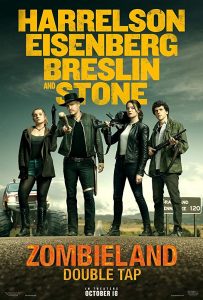 I think this is the worst I’ve ever done. I’m over 90% sure I haven’t missed any reviews and this is the only old one, but damn. Did I read a book and later forget? Probably not, since I take my Hobb slowly, and because of the standard refrain of busy busy work towne, not to mention a board game convention and other various life distractions. Then again… uh-oh, I’d better check the Deathlands stuff. I think that was only while camping and has already been addressed.[1]
I think this is the worst I’ve ever done. I’m over 90% sure I haven’t missed any reviews and this is the only old one, but damn. Did I read a book and later forget? Probably not, since I take my Hobb slowly, and because of the standard refrain of busy busy work towne, not to mention a board game convention and other various life distractions. Then again… uh-oh, I’d better check the Deathlands stuff. I think that was only while camping and has already been addressed.[1]